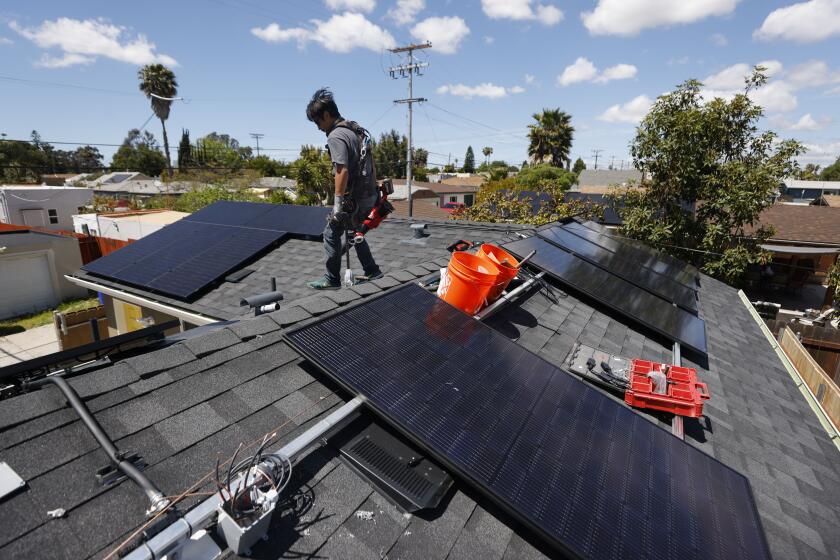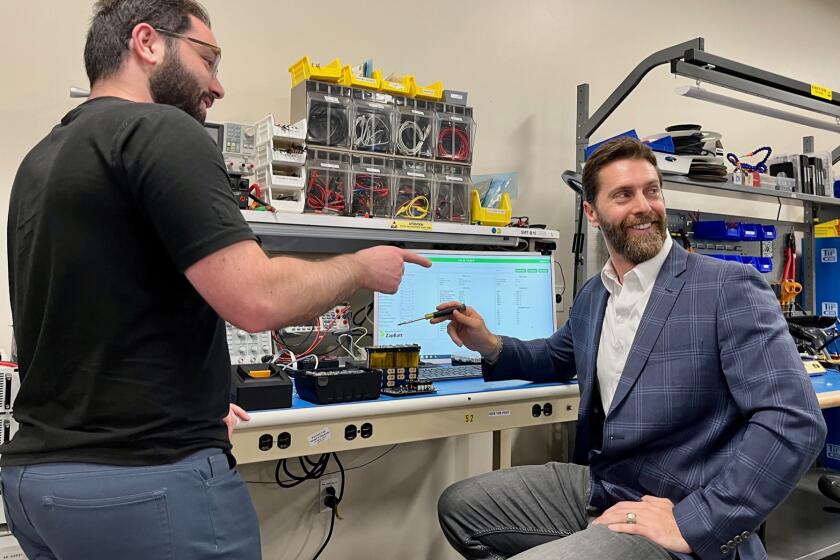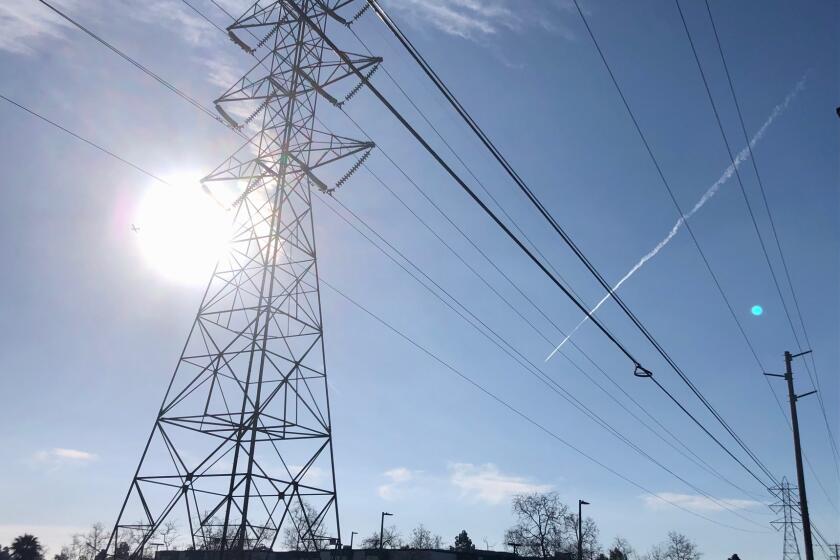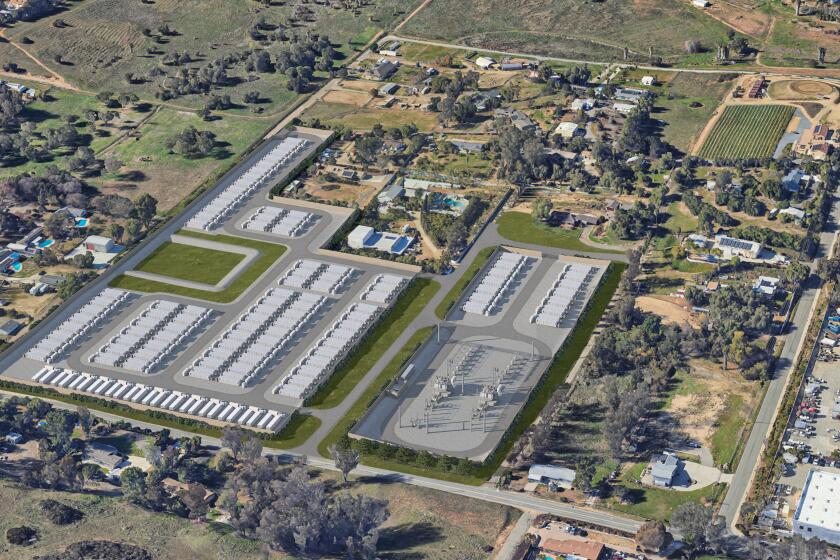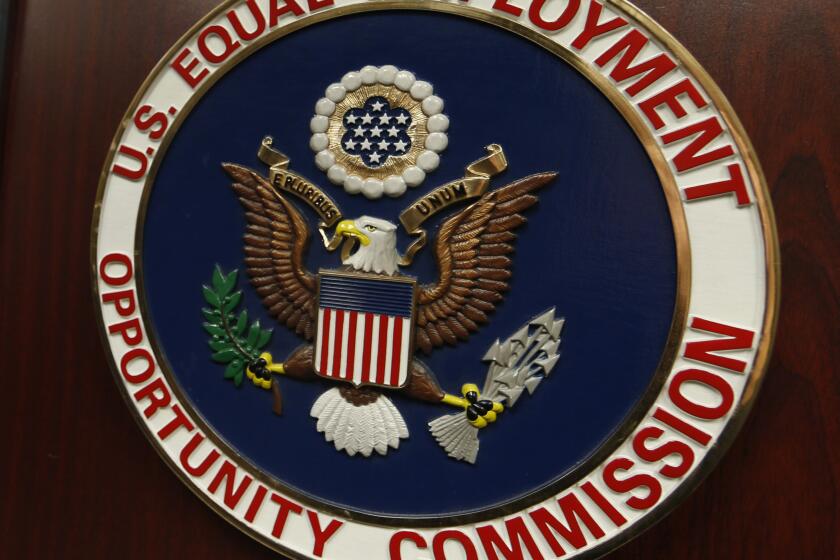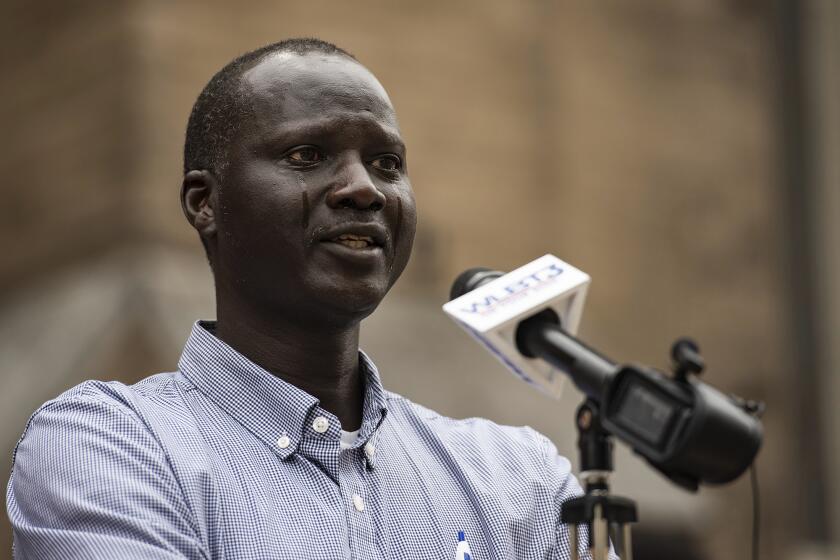SDG&E turns in the only bid for San Diego’s gas and electric franchises
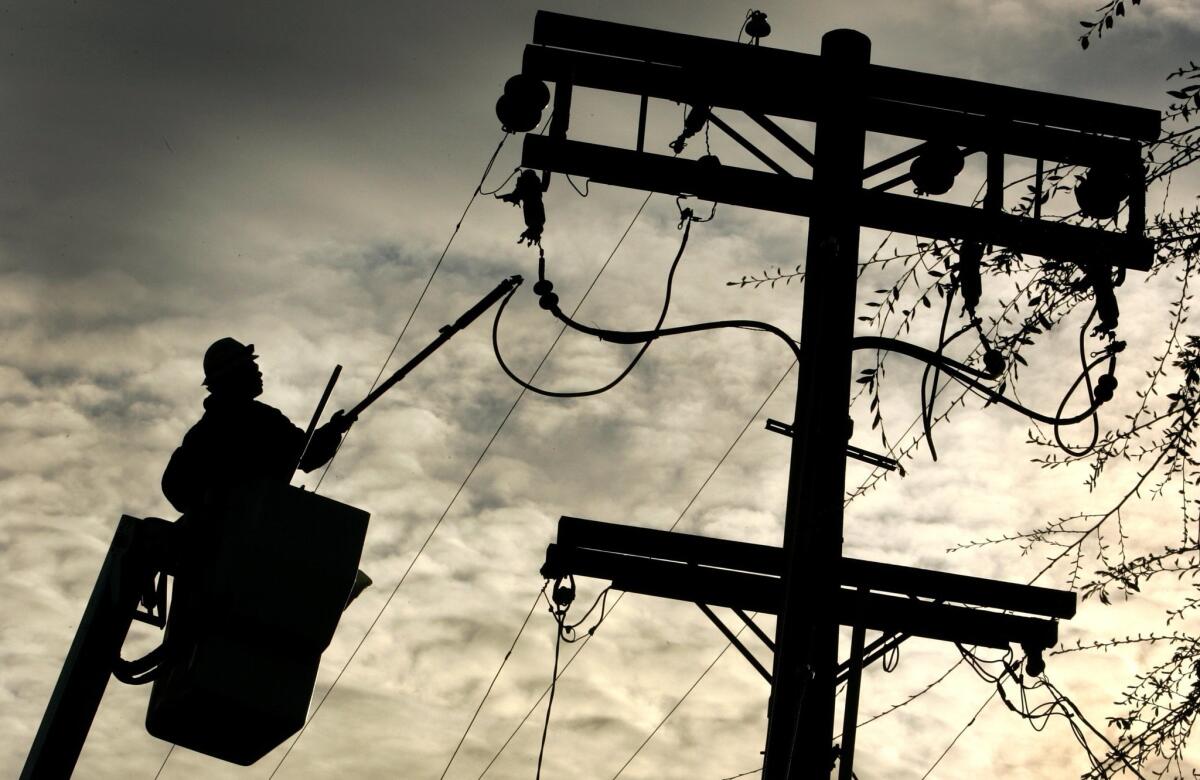
New mayor pledges to keep options open on a final decision
After months of speculation about who would bid on the right to provide gas and electric services within the city limits of San Diego, it turns out that San Diego Gas & Electric has submitted the only bid.
At the San Diego City Council chambers — nearly empty because of COVID-19 restrictions — the deputy director of the City Clerk’s office on Thursday morning opened the sealed envelopes containing prospective bids on a new franchise agreement.
But the drama was fleeting as SDG&E turned in the sole submissions. Among other conditions, the utility agreed to pay $70 million upfront for the rights to the electric franchise and $10 million for the gas franchise, each covering a term of 20 years.
But being the only bidder does not mean SDG&E will win the right to remain the provider of electric and gas services in San Diego — far from it.
Newly elected Mayor Todd Gloria appears to be keeping his options open.
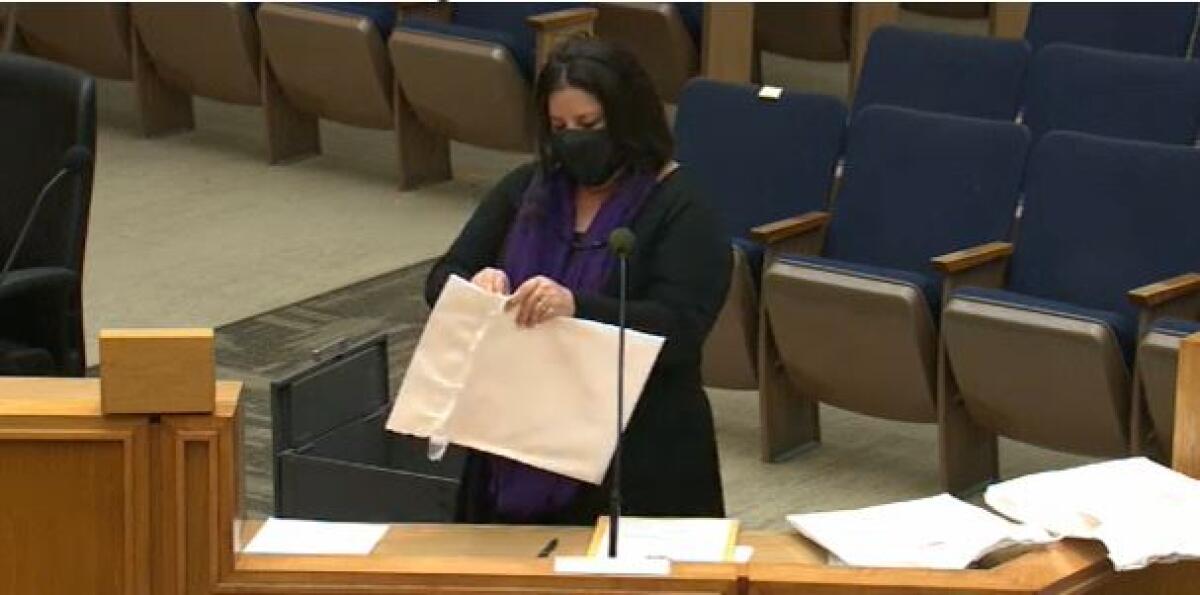
Jessica Lawrence, Gloria’s director of policy, told council members the mayor’s staff will review the bids with the City Attorney’s Office to determine if the SDG&E bid should be deemed “responsive” — that is, it meets all the requirements laid out by the city — and then consider what steps should be taken next.
“The mayor may reject (the bids), he may cancel the process entirely, he may make recommendations for award of any responsive bid,” Lawrence said during the virtual meeting.
Under a franchise agreement, a municipality gives a utility the exclusive use of public right-of-ways for transmission and distribution, as well as the right to install and maintain wires, poles, power lines and underground gas and electric lines.
Time is an important factor for the city to consider because the current 50-year franchise agreement between SDG&E and the city expires Jan. 17.
City attorney Mara Elliott told council members the city can extend the contract but it “would need SDG&E’s cooperation to do that.”
Lawrence said Gloria is open to seeking what the policy director called “a reasonable extension” to the existing franchise agreement with SDG&E but it’s unclear whether the utility is open to it.
Last month, former City Council President Georgette Gómez refused to place discussion of the new franchise agreement on the docket, saying the decision should be left to the incoming council and new mayor. Gómez called for the city to seek a one-year extension with SDG&E.
But SDG&E’s general counsel told the city it wasn’t interested. At the time, the company did not respond to a question from the Union-Tribune asking if it would consider extending the contract for a shorter time period of, say, six months.
Shortly after Thursday’s special meeting, SDG&E sent a response to the opening of the bids on its website.
The utility made no reference to its opposition to a one-year extension, saying it “urge(s) the City of San Diego to solidify its criteria and decision, and expeditiously select a responsible party to serve San Diego’s energy needs.”
Under the “strong mayor” system of city government, Gloria can call for a vote on the franchise agreement to be put before the city council. However, the council has the final say on accepting any new franchise agreement. It takes a supermajority of at least six of the council’s nine members to approve a deal.
Many of the council members Thursday called for Gloria to keep working on getting a one-year extension to the current deal.
“One of my big concerns as an attorney is actually trying to approve this major, multi-million-billion-dollar deal in the next four weeks,” said Marni von Wilpert, one of five new members who took office last week.
Councilman Sean Elo-Rivera criticized SDG&E for balking at a potential extension. “How can we be confident in our franchisee to abide by the provisions of this agreement, such as the requirement to make ‘good faith efforts’ to accomplish (the city’s) Climate Action Plan and climate equity goals if a good faith effort is not being made as we speak,” he said.
A new franchise agreement comes at a time when the city’s finances are under stress due to the economic effects of the pandemic. The Department of Finance has estimated a $124.1 million shortfall for fiscal year 2022.
Under the current franchise agreement, SDG&E pays about $65 million each year to the city’s general and environmental growth funds. Some critics say the payments just end up getting transferred to SDG&E customers through higher rates.
SDG&E said its bids would provide the city “with a significant and steady revenue source at a time when revenues are shrinking” in the wake of COVID-19.
“I’m cognizant of our dire financial straits but will not be forced to accept just any long-term agreement because of upfront dollars or threats to withhold fees,” said first-year Councilman Joe LaCava. “Therefore I would like us to take a new shot and consider the bid opening unresponsive.”
Councilwoman Monica Montgomery Steppe also serves as a board member for San Diego Community Power, the new five-city community choice energy program that launches next year as an alternative to SDG&E as a purchaser of power for customers. Coordination between the new program and SDG&E is essential but Montgomery Steppe said, “My experience (with SDG&E) ... has not proven cooperation to be a full reality.”
One option available to the city is to consider forming and running its own utility that would provide electric and gas services, such as the Sacramento Municipal Utility District and the Los Angeles Department of Water and Power.
Councilman Chris Cate said he’s opposed to taking that route.
“Even in circumstances where we’re not facing the budget deficits we’re going to be facing, the cost of municipalization is one in which we frankly cannot afford,” Cate said. “To say we can just issue billions of dollars in debt at a moment’s notice ... is not something we should be undertaking as a city.”
A utility consultant for the city earlier this year estimated that over a 20-year term, a new franchise agreement is worth at least $6.4 billion in profit to the company that wins it. Some groups have disputed that estimate, saying the deal is worth about $15 billion.
The opening of the bids and debate over what direction the city should take prompted 65 callers to phone in during the council meeting’s public comments period.
A handful expressed support for SDG&E’s offer but a large majority of callers criticized the utility, with some citing the fact that SDG&E’s rates are higher than those of other investor-owned utilities in California.
“We must stop rushing deals to appease special interests who plunder our coffers and undermine our goals,” said Matthew Vasilakas, co-director of policy for the Climate Action Campaign. “We call on the council to reject these bids and secure an extension so the city can get the job done right.”
The bidding process was established by former Mayor Kevin Faulconer, hoping to spur competition among multiple energy companies and lead to a bidding war that would work to the city’s advantage.
Earlier this year, Berkshire Hathway Energy, a subsidiary of billionaire Warren Buffett’s Berkshire Hathaway Inc., and Orange County-based Indian Energy had expressed interest in vying for San Diego’s franchise agreement but in the end, they did not make any submissions.
Get U-T Business in your inbox on Mondays
Get ready for your week with the week’s top business stories from San Diego and California, in your inbox Monday mornings.
You may occasionally receive promotional content from the San Diego Union-Tribune.


